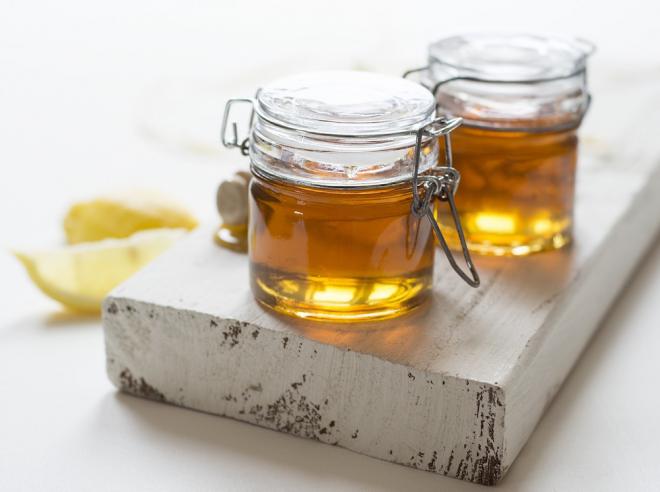Honey is a natural product made by bees, one of the most important animals. During their lifetime bees visit millions of blossoms. The result of that is not only honey but also pollination of many plants. Without bee pollination, we would not be able to enjoy many fruits and vegetables.
Honey was recognized as a natural medicine and sweetener since ancient times. Many archeological findings show that honey was a part of diet and medicine since ancient Egypt. Such findings may imply an answer to the question, is honey good for you? It was so adored that jugs of honey were placed in tombs of their dead. Specific properties of honey make that honey edible even today, as it can never go bad. Is honey good for you depends on the type of honey, it can have more or less healthy properties. The best benefits can only be gotten by using raw, unpasteurized honey. During the process of pasteurization, honey loses some of its nutritional value and healthy benefits.
Many sources talk about real benefits of honey and how you can improve your life by using honey in diet, beauty routines, healing wounds, etc... The list of praised real benefits of honey is a long one. But, is there something that might make honey bad for us? We will explore the properties of honey and their effect on us.
Honey is sugary substance produced and stored by worker bees. It is made from sugary secretions of plants or insects, such as nectar from flowers, or honeydew from the aphid. The bee swallows the nectar rich in sugars, vitamins, and minerals. Swallowed nectar is collected in bees honey stomach. While flying bees use the water from the nectar, making it drier and more viscous. When the bee arrives at the hive, it stores the nectar in honeycombs. In the beehive, nectar is dried even more by worker bees. The worker bees flap their wings, and that way circulate the air in the beehive, replacing the air few times in an hour. As the nectar is being dried further, it gets even more viscous. The finished product is what we know as honey.
The nectar is very important in honey production, and the type of nectar source dictates the type of honey produced. Some of the varieties are orange blossom honey, eucalyptus honey, blueberry honey, etc... Varieties of honey are differentiated by their structure, aroma, color, taste, nutritional value. For example, some floral varieties are darker or taste a bit bitter. Honey gets its sweetness from sugars fructose and glucose, which make it as sweet as granulated sugar. Also, honey has properties that give a distinctive flavor when used as a sweetener. Since it contains water, sugars, and some other ingredients, honey is very nutritious and easy to digest. Honey mostly contains simple sugars (glucose and fructose). They are separated and as such can be absorbed quicker than sucrose from table sugar. The fructose is stored as reserve energy, while glucose provides instant energy. Another property worth knowing about is that honey can absorb water from the environment. Honey is an antioxidant and protects the cells in the body from structural damage.
Honey’s pH level leans towards acidity (3.2 to 4.5 pH) which helps in reducing the growth of microorganisms. As a result, honey can never go bad. Medical research has found that discovery is very important. Medicine has advanced a lot of past years, but drug-resistant bacteria are creating a lot of problems. Honey's properties offer a new way of fighting them, as it is better at fighting infection than antibiotics.

Good effects of honey on our body have been known for centuries. Many cultures used it, from Egyptians, Romans, and Greeks to Indians and Chinese. Thanks to its properties honey has some benefits for our mind and body. Is honey good for you also depends on the kind of honey used. We can differentiate raw and pasteurized honey. Pasteurized honey, as the name itself says, went through the process of pasteurization. Because of high heat used in the process, such honey loses some of its nutritional value. Raw honey keeps all its properties and is an excellent source of vitamins, enzymes, minerals, amino acids, and energy. The best place to get raw honey is from a local beekeeper. That way you can know for sure how is that honey made and that it doesn’t have any added substances. Honey can benefit us in many ways; we will mention several important ones.

One of the many benefits of honey is that it is a great alternative to table sugar. Honey has the same sweetness as sugar but has higher nutritional value, and is digested differently. Table sugar is man made and is only made of sucrose (fructose and glucose). Sucrose passes through the stomach without digestion until it reaches the small intestine. Enzymes in small intestine have to break it down to glucose and fructose so they can be absorbed by our body. Honey also contains glucose and fructose, but they are separated. Because of their separation, their absorption can start as soon as they reach the small intestine. Glucose offers an instant source of energy, and fructose is stored offering prolonged source of energy. Also, honey contains only around 30% of glucose, 40% of fructose and the rest are other complex sugars. Complex sugars take longer to be absorbed because they need to reach small intestine to be broken down into glucose and fructose. Slower absorption means that there are no blood sugar spikes, the energy is released slower and longer. Vitamins, enzymes, and minerals in honey offer more nutritional value than plain sugar. Such property makes the honey great addition to a diet of people engaging in sports. Sucrose can be found in many foods we eat every day, even fruits and vegetables. Considering that, replacing table sugar with honey seems a logical move. In everyday life, honey might make us more energetic and help us avoid tiredness caused by blood sugar spikes.

As a natural antioxidant honey helps to protect cells of our body from structural damage. The most important antioxidant in honey is polyphenol. Polyphenol reduces the risk of cancer and cardiovascular diseases. The number of antioxidants is very different in raw honey and processed (pasteurized) honey. During the process of pasteurization, many antioxidants are destroyed. The concentration of antioxidants in honey is visible to the naked eye. The higher the concentration of antioxidants, the darker the honey. Using honey rich in antioxidants on the skin helps in protecting it from free radicals. Free radicals are molecules that cause cell damage and contribute to aging and disease. The production of free radicals is influenced by stress, pollution, the sun, lack of sleep... Free radicals are naturally present, and our body tries to keep the balance of them and antioxidants. Higher production of free radicals causes imbalance, which leads to issues such as diseases, skin wrinkling, and skin cancer. Since antioxidants negate their negative effects, adding more antioxidants restores the balance. Adding honey to your lifestyle is an easy way to keep your body healthy.
Antibacterial and antiseptic properties of honey promote healing and prevent infection. Sugars from honey react with water in such way that microorganisms cannot develop. In contact with fluids from sores, honey may promote the production of hydrogen peroxide. Hydrogen peroxide has an antibacterial effect on that areas and speeds up the healing. Honey also promotes reducing scars from lips, face, and skin by regenerating the tissue of the skin. Can be very effective in treating burns and scrapes.
Honey might help relieve the symptoms of seasonal allergies. The allergies occur when people inhale pollen, and the body perceives it as a foreign invader. Body's reaction to pollen is similar to the reaction to bacteria or virus. In response to pollen, body mounts an attack resulting in allergy symptoms. Raw honey contains a small concentration of pollen which acts as a natural vaccine. Consuming small quantities of pollen might help the body to create antibodies. After some time body should build up antibodies and be less reactive to the presence of pollen. It is important to ingest raw honey from your local region as it will contain pollen from local flowers.
Honey can absorb the moisture from the environment which makes it a great product for your skin. Helps in keeping the skin well moisturized without making it oily. It can absorb moisture from the air and keep the dry skin moisturized. Also, honey absorbs the excess moisture from your skin and protects it from infections. This could be very effective for people prone to oily skin. Be wary that you should not use honey as on your skin while the weather is dry because it will absorb the moisture from your skin and dry it out even more. Honey's antiseptic and antibacterial properties help in eliminating acne and pimples. With continuous use, it may prevent their return.
If you are battling with inflamed sinuses and its annoying symptoms, honey may help you. By simply ingesting a teaspoon of honey each day, within several months you may notice a decrease in symptoms. Some scientists think that there might be something in honey killing the bacteria that can cause sinus infections.
Many people have trouble falling asleep or staying asleep. The result of bad sleep is extreme fatigue and crankiness. Instead of reaching for sleep aids, you could try a natural remedy. The natural sugar in honey raises insulin which releases the neurotransmitter serotonin. The body converts serotonin to melatonin, a chemical that helps your body sleep. Also, honey contains amino acids which contribute to the production of amino acid tryptophan. Upon reaching the brain, tryptophan is converted into serotonin and eventually melatonin. Taking a spoonful of honey before bed can promote relaxation and help ease you to sleep.
Honey is a well known natural medicine, used in traditional medicine for centuries. There is no doubt that honey has many healing powers and is considered safe for ingestion. But, as with any medicine, it should be taken in moderation. Is honey bad for you mostly depends on the amount of honey consumed. Excessive intake of honey may have some side effects.
Firstly, we must mention that honey can be dangerous to infants. Babies under one year old should not consume honey or anything containing honey. Their immune system and digestive system are not fully developed which makes them vulnerable to bacteria. Honey may contain bacteria that causes infant botulism.
Honey is naturally slightly acidic, and that can create some health issues if consumed excessively. Acidic foods can erode your enamel, wear away the linings of your esophagus, stomach, and intestines, and lead to acid reflux. Acid reflux is a condition characterized by burning pain, known as heartburn. The pain is felt internally around the lower chest area, and it is caused by stomach acid flowing up into the food pipe.
If you are allergic to pollen, honey might cause a swelling or rash, and you might have troubles breathing and swallowing.
You should not forget that honey is a form of sugar and excess of sugar can cause insulin sensitivity. Honey is mostly sugar without any fiber, so sugar is absorbed rapidly, leading to an insulin spike. Absorption of sugar with fiber is slower, so it does not affect blood sugar directly. Especially people with diabetes might be affected by the alteration in blood sugar. The fructose in honey might interfere with small intestine's ability to absorb nutrients.
Eating too much honey can also add a lot of calories to your body. Fructose in honey can lead to weight gain, acne, diabetes, and pancreatic cancer. If you are trying to avoid gaining weight, you should limit the intake of honey.
Eating excess honey every day can cause digestive problems such as bloating, cramps, and diarrhea. The discomfort may continue until honey is out of your system. Honey made from the nectar of plant rhododendron can cause weakness and sweating. Rhododendron is a woody plant mainly found in Asia. Regular consumption of honey from this plant can lead to vomiting and nausea.
There is no specified recommendation of how much honey you should consume in a day, but there is a limit of how much sugar we can have in our diet. If you are already having a lot of sugar in your diet, you should limit yourself to only small amounts of honey. Try to limit your sugars to maximum 100 calories, about six teaspoons a day.
Honey can be an excellent addition to everyone's diet. It's a great source of healthy properties and has a unique taste. Recently researchers started paying more attention to medicines of natural origin. That puts honey in a great spot. Some benefits of honey have already been proven through research. Archeological findings of honey being used in medical field dates to ancient times. Even old Romans and Egyptians use it. In Egypt honey was also used for embalming their dead. Honey has many health benefits, but it should be taken in moderation. As with any known medicine, excessive use may result in some side effects. You have to be aware that honey, even though it may contain some vitamins, minerals, and enzymes, is still actually sugar. As such it can cause problems related to blood pressure, weight gain, dental health, and much more. So, is honey good for you? Our answer is YES! Many health benefits show that adding honey to your life might benefit you greatly. But, you have to be aware that it should be taken in moderation. Centuries of documented history praising good effects of honey show that there must be something special in this nature's gift.